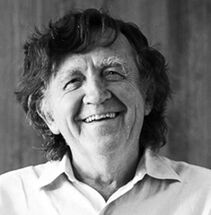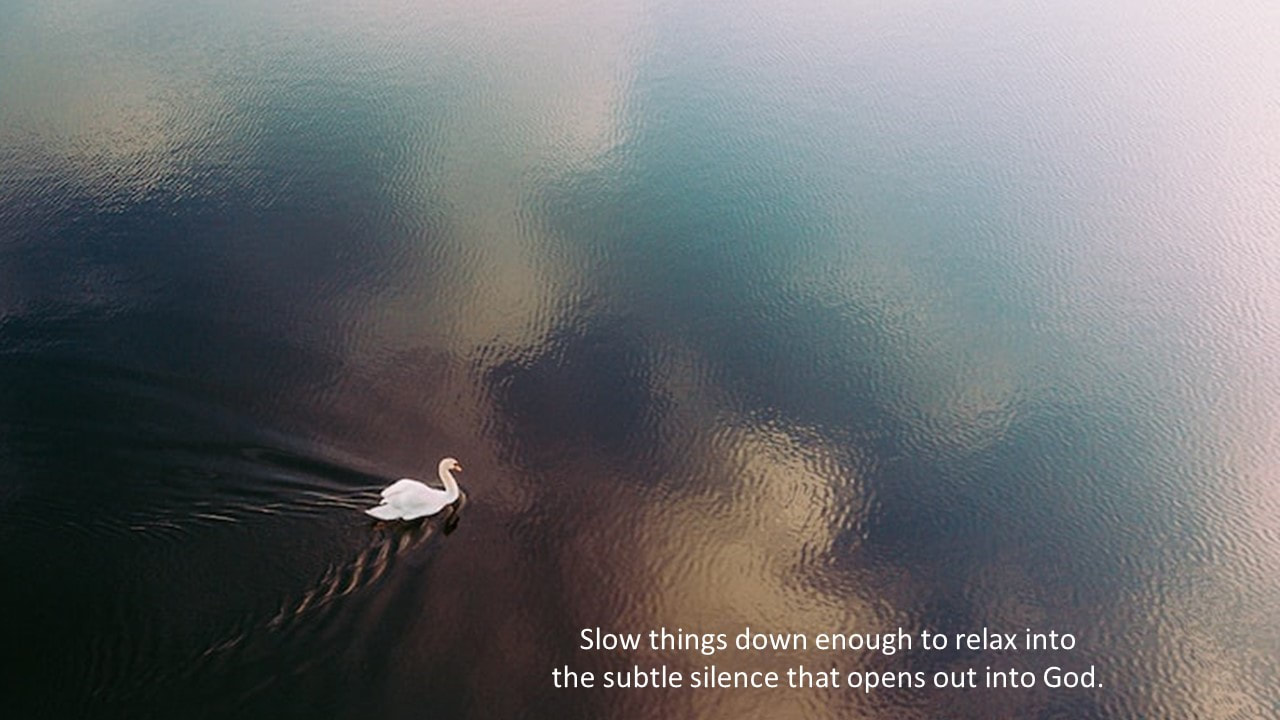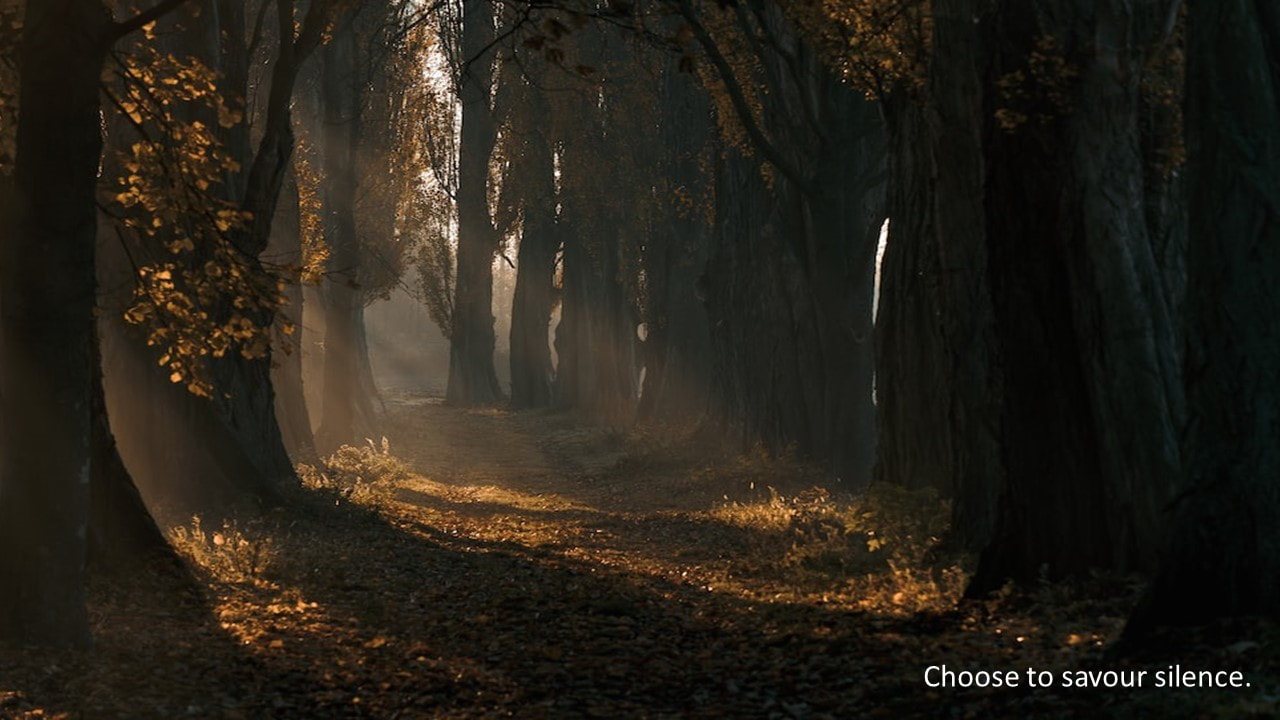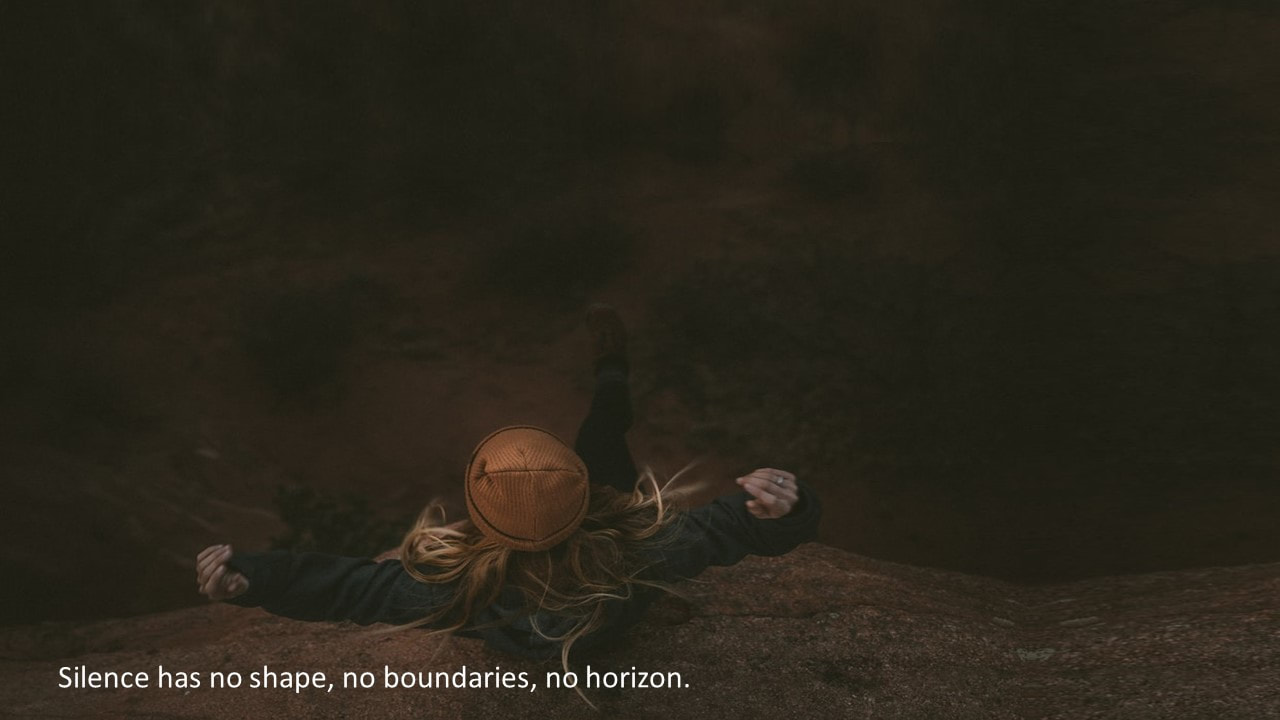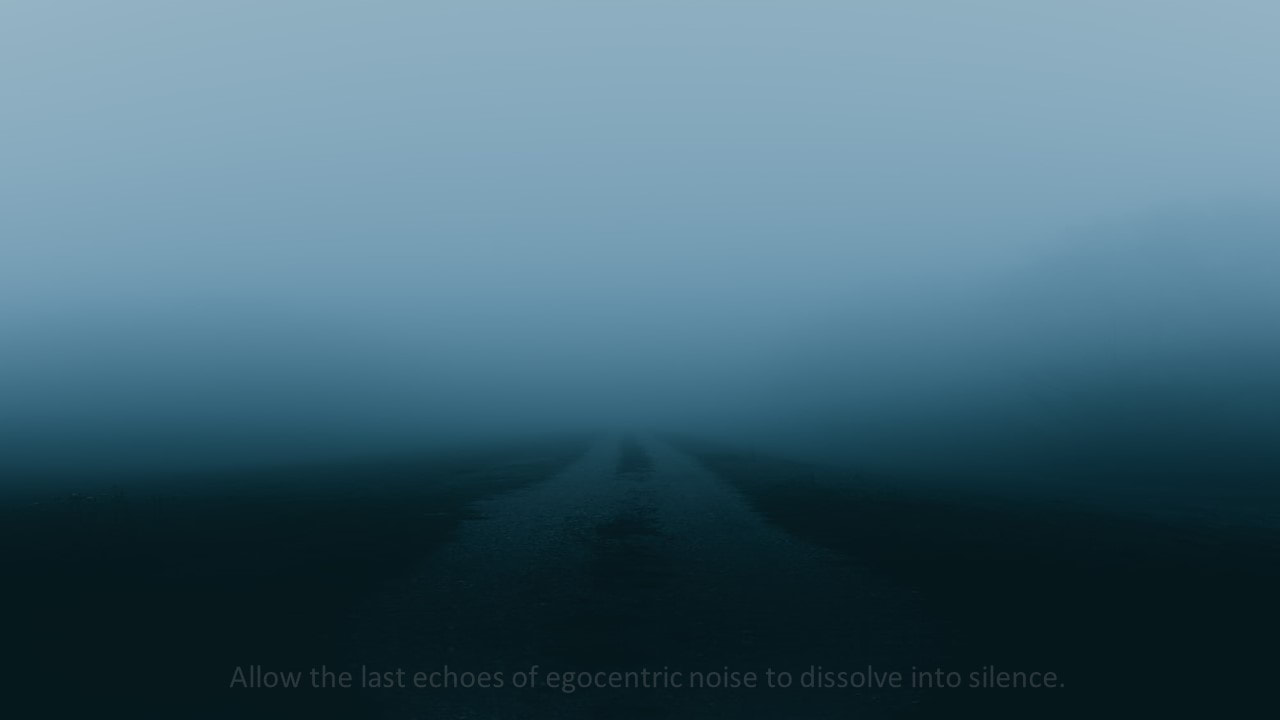The first week of each month has a short, image-backed quote with links to associated resources in the text below it. In other weeks, the short quote is taken from a longer one by the month's author, found below the image. The last week of the month has a short quote and questions to encourage reflection on all the month's quotations and images.
James Finley, our author for October, is a world-renowned author, speaker and retreat leader who blends spiritual wisdom and decades of practice as a meditator with a professional, trauma-informed understanding of our heart's deep longing for God.
Read more about James Finley's book, from which this month's quotes are taken, by clicking here.
Read more about James Finley's book, from which this month's quotes are taken, by clicking here.
|
Guided Meditation for all quotes:
For a 5 minute audio guided meditation to use with each week's quote, click the play button on the image. To pause, and restart, click in the same place. To see the image full screen as you listen, click the expand screen icon in the corner. |
|
|
Lectio Divina with longer quotes:
For an audio guided Lectio Divina to use with this week's longer quote, click the play button on the image. Allow 10-15 minutes for this practice. To pause, and restart, click in the same place. For a text version of the Lectio Divina meditation, click the button. |
|
Monday 2nd October, 2023
James Finley, Christian Meditation: Experiencing the Presence of God (HarperCollins, 2005), 106.
Image: Nachelle Nocom, Chicago, unsplash.com/@nachellenocom
This short image-backed quote is from James Finley's Christian Meditation: Experiencing the Presence of God (HarperCollins, 2005), 106. To read more about this book, click here.
James Finley - or Jim, as he prefers to be called and is affectionately known by many - is a former Trappist monk from Gethsemani Abbey, Kentucky. This monastery is best known as the community of the prolific Catholic writer, Thomas Merton, who was widely acclaimed both within and outside the Church. Discovering Merton's writings in his Catholic school library offered Jim comfort in a childhood ravaged by abuse from his alcoholic father. At 18, Finley fled to become a novice monk at Gethsemani, where Merton became his mentor and spiritual guide. Having discovered that the monastery was no escape from his history, Jim left within a few years, and after a turbulent, downward-spiraling period ending in extensive personal therapy, eventually trained as a clinical psychologist. Like Merton, Finley came to prominence within the Christian world and beyond following the publication of his first book, Merton's Palace of Nowhere: A Search for God through Awareness of the True Self (Ave Maria Press, 1978) - see here. Written from his deep, personal engagement with and understanding of Merton - who by this time had died in a tragic accident when travelling to Thailand - it has itself become a classic text, reprinted several times.
In the intervening decades, Jim Finley has been in constant demand as a retreat and workshop leader and as a spiritual director, and is a core member of faculty of the Centre for Action and Contemplation, established by Richard Rohr - see here and here. Latterly, Jim has offered his profound insight into the writings of many of the Christian mystics in CAC's Turning to the Mystics podcast: see here. Now in its eighth series, it is described as being 'for people searching for something more meaningful, intimate, and richly present in the divine gift of their lives.' Jim Finley's most recent book, The Healing Path: A Memoir and an Invitation (Orbis Books, 2023) - see here - is a contemplative reflection on the spirituality of healing that Jim has encountered in his own life and those of the people he has worked with. See here for a 37 minute interview with Jim about this book, or you can access a free audio series by Jim from CAC, 'Exploring the Contemplative Dimensions of Healing Trauma': see here. Many other video recordings of Jim's teaching, can be found easily on youtube.
For those of you who like something a little more unusual, try Alana Levandoski's beautiful album, Point Vierge, which weaves her settings of short pieces of text from Thomas Merton's books with Jim Finley talking about Merton's spiritual journey. It's a lovely way to memorise some beautiful texts. See here.
In the intervening decades, Jim Finley has been in constant demand as a retreat and workshop leader and as a spiritual director, and is a core member of faculty of the Centre for Action and Contemplation, established by Richard Rohr - see here and here. Latterly, Jim has offered his profound insight into the writings of many of the Christian mystics in CAC's Turning to the Mystics podcast: see here. Now in its eighth series, it is described as being 'for people searching for something more meaningful, intimate, and richly present in the divine gift of their lives.' Jim Finley's most recent book, The Healing Path: A Memoir and an Invitation (Orbis Books, 2023) - see here - is a contemplative reflection on the spirituality of healing that Jim has encountered in his own life and those of the people he has worked with. See here for a 37 minute interview with Jim about this book, or you can access a free audio series by Jim from CAC, 'Exploring the Contemplative Dimensions of Healing Trauma': see here. Many other video recordings of Jim's teaching, can be found easily on youtube.
For those of you who like something a little more unusual, try Alana Levandoski's beautiful album, Point Vierge, which weaves her settings of short pieces of text from Thomas Merton's books with Jim Finley talking about Merton's spiritual journey. It's a lovely way to memorise some beautiful texts. See here.
Monday 9th October, 2023
James Finley, Christian Meditation: Experiencing the Presence of God (HarperCollins, 2005), 105.
Image: Osman Rana, Boston, USA, unsplash.com/@osmanrana
This short image-backed quote is taken from this week's longer quote, below, in James Finley's Christian Meditation: Experiencin the Presence of God (HarperCollins, 2004), 105-7. For more about this book, click here.
|
Listen to this week's longer quote:
To listen to the longer quote, below, being read, click the play button on the small version of the image next to or below this text. To see the image full screen as you listen, click the expand screen icon in the corner. |
|
When I was living as a monk in a monastery that followed the Rule of Saint Benedict, I experienced directly the transforming power of the practice of silence. After I left the monastery I discovered in meditation a way to reenter the silence that had so transformed my life in the monastery.
I realize that our life out here in the world, where the vast majority of us live our lives, is considerably more noisy, and requires a lot more talking, than the life lived by monks and nuns in their cloisters. I realize, too, that the hectic pace in which many of us live our lives makes it difficult to slow things down enough to relax into the subtle silence that opens out into God. But the great thing about meditation is that it directly embodies the essence of silence. The moment you begin to silently sit in meditation, you are silent. It may be true that this silence is, at first, only the silence that begins when you stop speaking. But you can choose to turn towards this initial taste of silence. …
The moment you sit in meditation and become silent, the silence surrounds you and immediately makes itself felt. But if the chatter of your wandering mind and the frayed edges of a hectic day have a real grip on you, it takes a while for the silence to sink in. Sitting in silence, breathing in silence, opening yourself to silence, you become, little by little, more and more silent. … The silence of a single session of meditation can open up more mystery and depth of oneness with God than a lifetime of speaking could even begin to explain.
Monday 16th October, 2023
James Finley, Christian Meditation: Experiencing the Presence of God (HarperCollins, 2005), 106.
Image Autumn: Michael Pointner, unsplash.com/@pino_rumbero
This short image-backed quote is taken from this week's longer quote, below, in James Finley's Christian Meditation: Experiencin the Presence of God (HarperCollins, 2004), 105-6. For more about this book, click here.
|
Listen to this week's longer quote:
To listen to the longer quote, below, being read, click the play button on the small version of the image next to or below this text. To see the image full screen as you listen, click the expand screen icon in the corner. |
|
'You can choose to savour silence, to open yourself to it, so as to enter more deeply into its hidden depths. …
Sitting still and straight, you sit in silence. Becoming aware of your breathing, you allow your breathing to open the way to a yet deeper, more interior silence. Settling into silence, you give yourself to the silence as the silence gives itself to you. This giving of yourself to silence as silence gives itself to you happens of itself as you simply become open and receptive to the silence in which you sit.
There are no doctrines to which you must submit to gain access to silence. In fact, as long as the mental noise of ascribing or refusing to ascribe to doctrines continues, you are not yet silent. There is nothing you have to figure out before silence will allow you to enter into all that lies hidden in it. In fact, as long as the mental noise of imagining anything needs to be figured out, or can be figured out [continues], you are not yet silent. All that is needed is for you to simply become silent, in a willingness to become more silent still.'
Monday 23rd October, 2023
James Finley, Christian Meditation: Experiencing the Presence of God (HarperCollins, 2005), 107.
Image: Katie Drazdauskeite, Colorado, USA, unsplash.com/@kotrad
This short image-backed quote is taken from this week's longer quote, below, in James Finley's Christian Meditation: Experiencin the Presence of God (HarperCollins, 2004), 107-8. For more about this book, click here.
|
Listen to this week's longer quote:
To listen to the longer quote, below, being read, click the play button on the small version of the image next to or below this text. To see the image full screen as you listen, click the expand screen icon in the corner. |
|
'As you quietly learn the ways of silence, you begin to discover for yourself that there are no handles in silence for you to hold on to. Silence has no shape, no boundaries, no horizon. There are no toeholds in silence to stop your descent into depths you cannot comprehend. It is in learning to rest in silence that you are led by the indwelling spirit into the eternal silence of God.
In reading the creation narrative in the Book of Genesis, we discover that God never said, “Let there be silence.” Silence is, then, uncreated. Being uncreated, silence has no beginning. And in having no beginning, silence never ends. God eternally dwells in the uncreated mystery of the very silence that underlies and pervades our lives. Surely, then, silence is a trustworthy place to be. When you die you will enter into this silence for ever. … We might say that in practicing meditation we are practicing what it will be like to be dead. Which is to say, we are practicing what it will be like to be, at last, eternally, fully alive with the very silence of God.
It is out of God’s eternal silence that God eternally speaks the world and everything in it into being. If only we could become truly silent and attentive, we could hear God uttering us and all of creation into being. The difficulty is that we do not hear so well. The din of our egocentric noise drowns out the silent voice that is uttering us and all things into being. But Christ has come as lord and master of our true self, inviting us, teaching us to listen. … We become silent that we might learn to listen to Christ calling us to love. It is the love revealed to us in Christ that breaks our heart open and teaches us to listen. Our learning to love as Christ has loved us breaks down the barriers that close us off from ourselves, God, and others. Meditation is an act of love. It is a way of becoming silent so that the egocentric noise of our mind can fall into the background. Sitting still and straight, grounded in silence, we become a listening presence.'
Monday 30th October, 2023
James Finley Christian Meditation: Experiencing the Presence of God (HarperCollins, 2005), 107.
Image: Branimir Balogović Croatia, unsplash.com/@brandaohh
The last week of each month offers some questions to help you reflect further on its quotations and images, and how they resonate with your own spiritual journey and relationship with God.
You can engage with these using the written text or the audio version of the questions, below.
|
Listen to the reflection questions:
To listen to the reflection questions, below, being read, click the play button on the Reflect ... image next to or below this text. To see the image full screen as you listen, click the expand screen icon in the corner. |
|
Reflection questions:
Before reflecting on this month's quotes and images, take time to re-ground yourself in your body.
Perhaps take a few slow breaths, feel your feet on the floor and be aware of how your body feels in this moment.
1) Read back over or listen again to this month's quotes and spend time looking at their associated images. As you do so, note a phrase or image that draws your attention. If this is a phrase, you might like to write this out in a journal or on a piece of paper where you will see it regularly. Consider reading aloud several times what you have written to help the words sink more deeply into your heart. If an image resonates with you, let your gaze rest lightly on it for a couple of minutes, allowing it to speak to your heart. Consider using it as a screensaver for a while, or perhaps print it out and place it somewhere that you will see it often.
2) What emerges as you sit with the phrase or image that attracted your attention? Does a new insight or a question, emotion or sensation arise? Take some time to write down and ponder on whatever you notice.
3) Where can you see hope in the midst of what is emerging in you, for yourself, your neighbour, your community, or the planet? How might this impact your daily life and those with whom you share it?
4) In the days and weeks to come, how can you stay open to what you have discovered from your reflections?
Take some time to give thanks for the hope that you have found in this month's quotes and images.
Before reflecting on this month's quotes and images, take time to re-ground yourself in your body.
Perhaps take a few slow breaths, feel your feet on the floor and be aware of how your body feels in this moment.
1) Read back over or listen again to this month's quotes and spend time looking at their associated images. As you do so, note a phrase or image that draws your attention. If this is a phrase, you might like to write this out in a journal or on a piece of paper where you will see it regularly. Consider reading aloud several times what you have written to help the words sink more deeply into your heart. If an image resonates with you, let your gaze rest lightly on it for a couple of minutes, allowing it to speak to your heart. Consider using it as a screensaver for a while, or perhaps print it out and place it somewhere that you will see it often.
2) What emerges as you sit with the phrase or image that attracted your attention? Does a new insight or a question, emotion or sensation arise? Take some time to write down and ponder on whatever you notice.
3) Where can you see hope in the midst of what is emerging in you, for yourself, your neighbour, your community, or the planet? How might this impact your daily life and those with whom you share it?
4) In the days and weeks to come, how can you stay open to what you have discovered from your reflections?
Take some time to give thanks for the hope that you have found in this month's quotes and images.
|
To return to the 'Quoting Silence: A month with ...' Collection, click the button.
|
